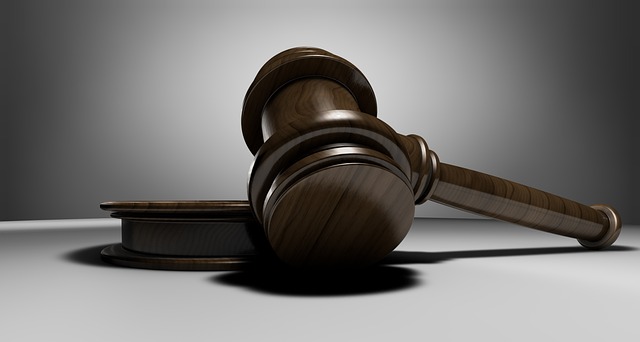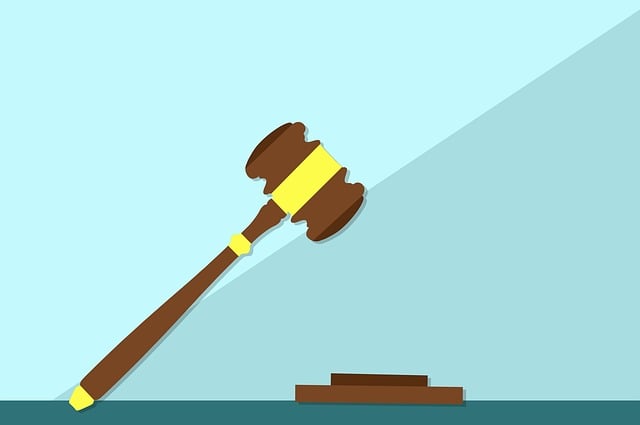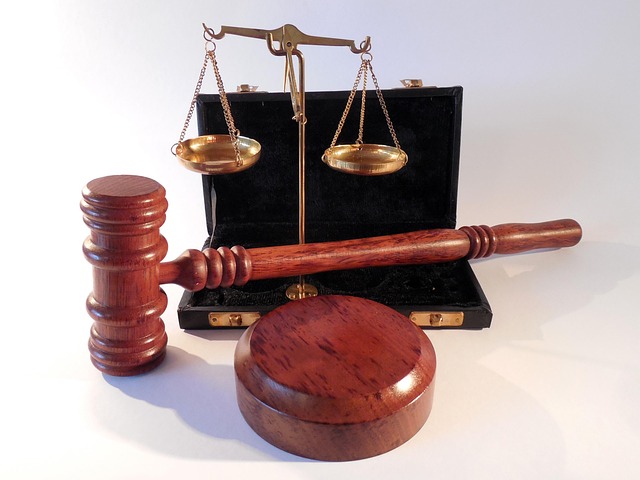Understanding Burden of Proof in Criminal Cases is key to navigating and ensuring fairness in criminal litigation. This concept dictates that prosecutors must prove guilt beyond a reasonable doubt through compelling evidence, protecting both accused and victims. Defendants can challenge accusations using various legal strategies, with outcomes hinging on the application of these principles by juries (or judges) in complex cases involving white-collar crimes.
“Explore the intricate world of litigation types, particularly focusing on criminal proceedings. This comprehensive guide breaks down key components that underpin these legal battles. From defining criminal litigation and understanding the burden of proof basics, to delving into evidence types and common defenses, it offers insights crucial for navigating these complex cases. Additionally, it examines the pivotal roles played by juries and judges in trials, providing an indispensable resource for understanding the core principles of Understanding Burden of Proof in Criminal Cases.”
- Defining Criminal Litigation: An Overview
- Understanding Burden of Proof Basics
- Types of Evidence in Criminal Cases
- Common Legal Defenses and Their Impact
- The Role of Jury vs Judge in Trials
Defining Criminal Litigation: An Overview

Criminal litigation is a specialized legal domain that deals with cases involving alleged criminal offenses against individuals or society as a whole. It differs from civil litigation in its focus and consequences, as it aims to establish guilt and determine punishment for accused persons. In this type of litigation, the state or a governmental entity acts as the plaintiff, seeking justice on behalf of the public, while the accused is the defendant.
The key aspect that distinguishes criminal cases is the strict burden of proof required. Unlike civil lawsuits where the plaintiff needs to prove their case by a preponderance of evidence, criminal cases demand a higher standard. The prosecution must convince a jury or judge beyond a reasonable doubt that the defendant committed the crime. This fundamental principle ensures fairness and protects the rights of both the accused and the victims, reflecting the delicate balance between upholding law and order and safeguarding individual freedoms in the philanthropic and political communities. Understanding this burden of proof is crucial for navigating criminal litigation, as it can significantly impact whether an individual avoids indictment or faces the consequences of a criminal conviction.
Understanding Burden of Proof Basics

In any legal battle, especially criminal cases, one fundamental concept that shapes the outcome is the burden of proof. This refers to the responsibility of a party in a lawsuit to present sufficient evidence to support their claims or arguments. In the context of Understanding Burden of Proof in Criminal Cases, it’s crucial to grasp that the standard of evidence required is higher than in many other types of litigation. The prosecution, as the accuser, bears the burden of proving beyond a reasonable doubt that an accused person committed the crime. This principle ensures fairness, protecting both corporate and individual clients from unfounded accusations.
The concept plays a pivotal role in guiding judges and juries to make informed decisions. It dictates the level of certainty required to establish guilt or innocence. When applied correctly, it helps ensure the complete dismissal of all charges if the prosecution fails to meet this rigorous standard. Understanding burden of proof basics is thus integral for both legal professionals and those navigating the complexities of criminal justice systems.
Types of Evidence in Criminal Cases

In criminal cases, understanding the burden of proof is paramount to ensuring justice and fairness. The prosecution bears the responsibility of presenting compelling evidence to prove beyond a reasonable doubt that the defendant committed the alleged crime. This high standard requires prosecutors to gather and present various types of evidence, including tangible items, expert testimony, witness statements, and documents. For instance, physical evidence like fingerprints or DNA samples can strongly support a case, while eyewitness accounts offer firsthand insights into crucial moments.
Moreover, understanding the burden of proof is key in navigating the complexities of criminal litigation. It empowers defendants to challenge accusations, ensuring that convictions are based on solid, irrefutable evidence rather than mere speculation. Across the country, achieving extraordinary results often hinges on a thorough examination of evidence and the application of legal principles, ultimately leading to just outcomes for all parties involved.
Common Legal Defenses and Their Impact

In many legal battles, understanding the burden of proof is a pivotal strategy for both plaintiffs and defendants alike. This principle significantly influences the outcome of criminal cases, where the prosecution bears the responsibility of presenting compelling evidence to establish guilt beyond a reasonable doubt. A successful defense often hinges on raising doubts in the minds of jurors or judges, thereby challenging the prosecution’s case. Common legal defenses range from challenging the admissibility of evidence to asserting constitutional violations and even invoking circumstances that mitigate culpability.
For instance, in white-collar defense cases—known for their intricate nature and high stakes—attorneys leverage specialized knowledge to navigate complex legal landscapes. By employing strategies such as questioning motive, presenting alternative explanations, or highlighting procedural irregularities, they aim to clear their clients’ names or secure more favorable outcomes. This expertise is crucial in combating the prosecution’s efforts, especially when dealing with unprecedented track records in litigation.
The Role of Jury vs Judge in Trials

In many legal systems, the decision-making power in trials rests with either a judge or a jury, each playing a distinct role. When it comes to civil cases, judges typically preside over proceedings, interpreting laws and ensuring procedural fairness. However, criminal cases often involve a unique dynamic where the burden of proof lies heavily on prosecutors, who must convince the trier of fact—be it a judge or a jury—of the defendant’s guilt beyond a reasonable doubt. This fundamental principle is a cornerstone of the justice system, ensuring that accusations are supported by substantial evidence before an individual is found culpable.
The role of a jury in criminal trials across the country varies but generally involves listening to evidence presented by both the prosecution and the general criminal defense, deliberating, and rendering a verdict. Juries are seen as a protective measure for the rights of individuals, offering a check against potential judicial bias. In contrast, judges in these cases focus on ensuring procedural integrity, interpreting laws, and applying them to the facts presented, ultimately making the final determination of guilt or innocence, especially where the evidence is complex or the legal issues nuanced. This separation of powers aims to provide a balanced approach, catering to both the need for a fair trial and the strict application of the law.
In navigating the complex landscape of criminal litigation, understanding the burden of proof is paramount. This article has provided an overview of key aspects, including defining criminal litigation, explaining the burden of proof basics, exploring types of evidence, delving into common legal defenses, and discussing the role of juries versus judges. By grasping these fundamentals, folks can better appreciate the intricacies involved in this vibrant and crucial aspect of our legal system, ultimately enabling informed discussions and decisions within the realm of criminal cases.






